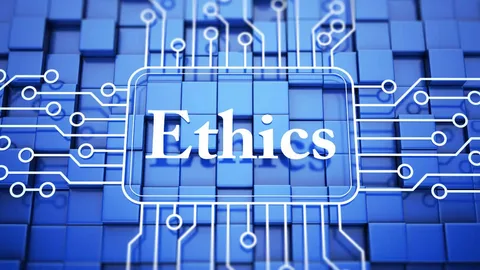In an era defined by the pervasive influence of data, digital ethics has emerged as a foundational concern in the practice of data science. As algorithms become embedded in everyday life—from personalised recommendations and credit scoring to predictive policing and medical diagnostics—questions around fairness, transparency, and accountability cannot be overlooked. The role of digital ethics is to ensure that data-driven technologies serve humanity responsibly, respecting individual rights and societal values.
This intersection of technology and ethics is not a hypothetical debate; it is an urgent need shaping educational curricula, industry best practices, and legislative frameworks. For aspiring professionals entering the field, understanding digital ethics is no longer optional. It is an integral part of what defines a competent and conscientious data scientist today.
The Evolution of Ethical Concerns in Data Science
When data science first gained traction, the focus was primarily on technical performance—how to process large datasets efficiently, build accurate models, and extract meaningful insights. Ethical concerns were often an afterthought, viewed as the domain of policymakers or legal experts. However, high-profile controversies, such as biased AI in hiring platforms and the misuse of personal data by major tech companies, have catapulted digital ethics into the spotlight.
Modern data science is therefore as much about responsibility as it is about innovation. Data scientists must now ask: Where did this data come from? Was consent obtained? Could this model reinforce systemic biases? What are the downstream effects of our predictions? These questions reflect a shift from purely technical evaluation to a broader, multidisciplinary approach.
The Importance of Ethical Frameworks
Various ethical frameworks guide data scientists in their practice. One well-known example is the FAIR principles—Findability, Accessibility, Interoperability, and Reusability—which promote responsible data management. Similarly, principles like transparency, accountability, and inclusiveness are becoming standard benchmarks in AI development.
Organisations are increasingly adopting ethical review boards and conducting impact assessments before deploying data science models. Governments, too, are introducing regulations such as the EU’s General Data Protection Regulation (GDPR), which actively sets strict requirements on data privacy and algorithmic transparency. These changes signify a broader societal expectation for ethical rigour.
Integrating Ethics into Education
Educational institutions have begun to embed digital ethics within their data science curricula. A well-rounded data scientist course no longer focuses solely on programming languages, statistical methods, and machine learning algorithms. It now includes modules on data privacy laws, ethical AI, and case studies that illustrate ethical dilemmas in real-world scenarios.
This shift reflects an understanding that ethical competence is as vital as technical skill. Students trained in these integrated programmes are better equipped to navigate the grey areas they will inevitably encounter in professional settings. For instance, should a recommendation system prioritise profit, user engagement, or user well-being? These are not merely technical questions but moral ones.
Moreover, case-based learning is a powerful tool in ethics education. By examining situations where data misuse led to significant societal harm, students gain a nuanced understanding of how to apply ethical principles. This analytical approach encourages future data scientists to think critically and act responsibly.
Hyderabad’s Role in Ethical Data Science Education
In India, Hyderabad has emerged as a leading centre for technological and educational advancement. With its robust ecosystem of tech companies, startups, and research institutions, the city is an ideal place for fostering ethical innovation. Institutions offering a data science course in Hyderabad often collaborate with industry partners to provide students with exposure to real-world challenges.
These courses are increasingly incorporating ethical considerations as a core component of their syllabi. From understanding local data privacy laws to participating in interdisciplinary research projects that examine the societal impact of AI, learners in Hyderabad are being trained to be not just proficient coders but thoughtful technologists.
The advantage of studying in a city like Hyderabad lies in its blend of academic excellence and industrial relevance. Students benefit from guest lectures, internships, and hackathons that prioritise ethical problem-solving. This holistic approach ensures that graduates are well-prepared to meet the demands of a conscientious data science industry.
The Corporate Perspective
Businesses are also recognising the importance of digital ethics. Companies that previously prioritised speed and scale are now reconsidering their metrics of success. Ethical lapses not only damage public trust but also lead to financial penalties and legal repercussions.
As a result, many organisations are investing in ethics training and hiring professionals with a strong ethical foundation. The demand for ethically trained data scientists is growing, and those who have completed a comprehensive data scientist course with an emphasis on ethics find themselves particularly well-positioned.
In sectors like healthcare, finance, and public policy, where decisions can have profoundly impactful effects on human lives, the margin for ethical error is extremely thin. Companies operating in these fields seek professionals who can balance innovation with integrity.
Emerging Ethical Challenges
The landscape of digital ethics is constantly evolving. New technologies bring new dilemmas. For instance, generative AI raises questions about content ownership and misinformation, while biometric data collection poses challenges related to consent and surveillance. Quantum computing, though still in its infancy, could one day break current encryption standards, demanding a rethinking of data security ethics.
To stay ahead, data scientists must commit to lifelong learning. Ethical standards are not static; they must adapt to changing societal norms, technological capabilities, and global regulations. Continuous professional development in digital ethics is therefore crucial.
Conclusion
Digital ethics is not a separate discipline but a core component of modern data science. It shapes how data is collected, analysed, and applied. As the consequences of data-driven decisions become more far-reaching, the need for ethically grounded professionals becomes more urgent.
Educational programmes are rising to this challenge by incorporating ethics into their core curricula. Cities like Hyderabad, with their dynamic educational and industrial landscapes, are leading the way in training the next generation of responsible data scientists. Enrolling in a reliable data science course in Hyderabad provides more than just technical know-how; it offers the ethical grounding necessary to navigate today’s complex digital world.
In sum, the path forward for data science is clear: innovation must go hand in hand with integrity. By embedding ethical considerations at every stage of the data science lifecycle, we can ensure that technology truly serves the public good.
ExcelR – Data Science, Data Analytics and Business Analyst Course Training in Hyderabad
Address: Cyber Towers, PHASE-2, 5th Floor, Quadrant-2, HITEC City, Hyderabad, Telangana 500081
Phone: 096321 56744





